Last-Minute NYC Holiday Gift Guide 🎁
We’ve created a holiday gift guide with presents for the intrepid New Yorker that should arrive just in time—


The historic Sea View Hospital on Staten Island is getting a long awaited conversion into a Wellness community, New York City’s first, and a move by the New York City Economic Development Center to revive a storied public health legacy that began with the quest to find a cure for tuberculosis in the early 20th century. Since 1913, the complex has evolved over the years into a unique blend of active hospital (operated by NYC Health + Hospitals) and adaptive reuse of many buildings. Still others lie unused and deteriorating, awaiting new life. This has made the site a mythical one for urban explorers and filmmakers, but also one that contains over a century of history and untold stories.
We have had the opportunity to visit Sea View Hospital on numerous occasions over the past few years and have put together a list of secrets that highlight both its past and its future. The new Wellness community will take the legacy of Sea View’s past and apply it to the health challenges facing New Yorkers today. Like a century ago, cures for some of today’s maladies have not all been found yet but it is known that fresh air and exercise can help. Sea View Hospital remains well poised to deliver another century of healthcare for the city.
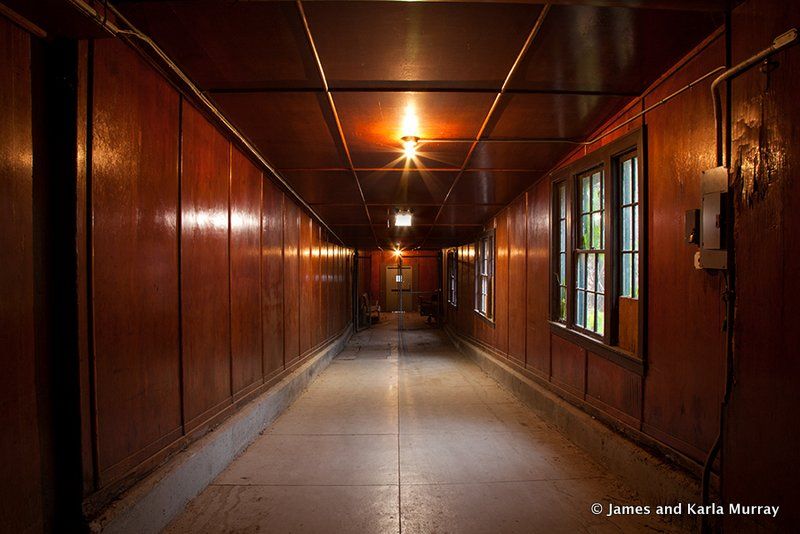
The original buildings at Sea View Hospital were all connected via above ground tunnels which enabled the efficient movement of staff and patients. An aerial view of the site provides a clear layout of the above ground tunnels, some elevated and some on the ground. They connected the administration building to the kitchen building, to the Women’s Open Air Pavilions and other structures. While now predominantly used for storage, the tunnels still contain original architectural details, like the wood paneling above.
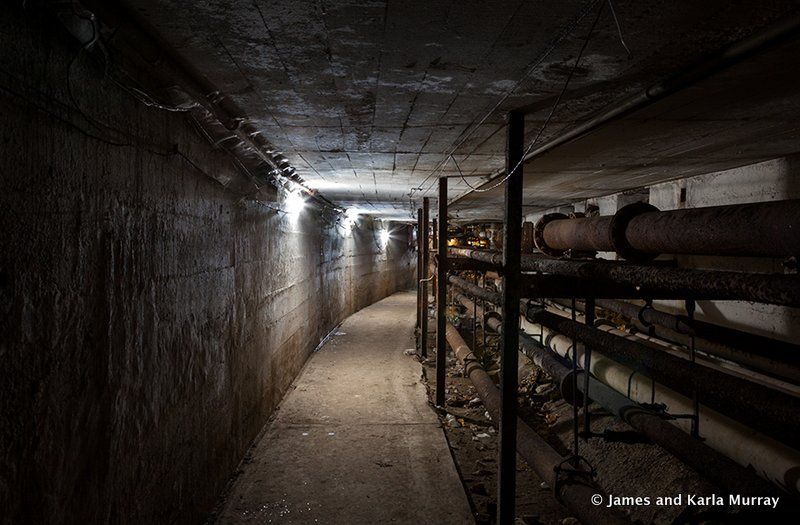
Parallel to these above ground tunnels, one level below, is another set of tunnels that contain more functional infrastructure of the Sea View Hospital complex. One tunnel leads to the former morgue and laboratory, now converted into the offices of the Staten Island Ballet. Above ground, the only indication of a tunnel in this area is a turret like structure. Below ground, that same spot is photographed below:
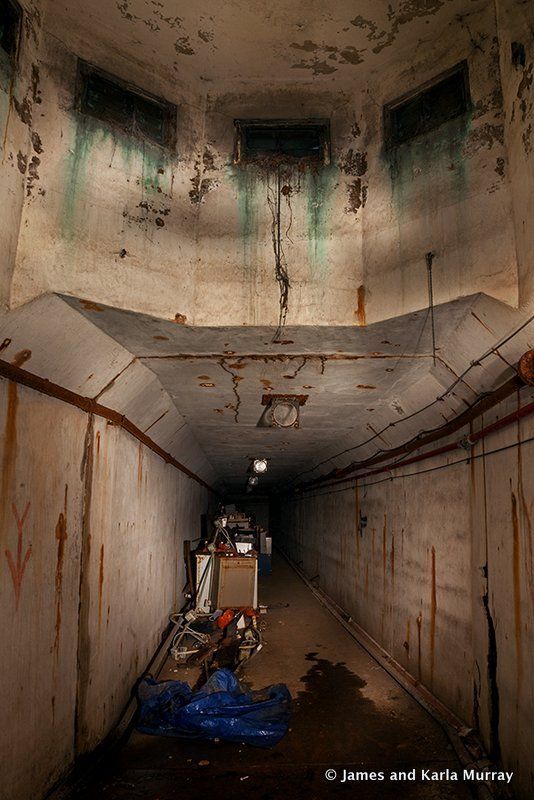
The interior of the octagonal kitchen, seen in an aerial view at the top of this article:

Other areas of the above ground tunnels:
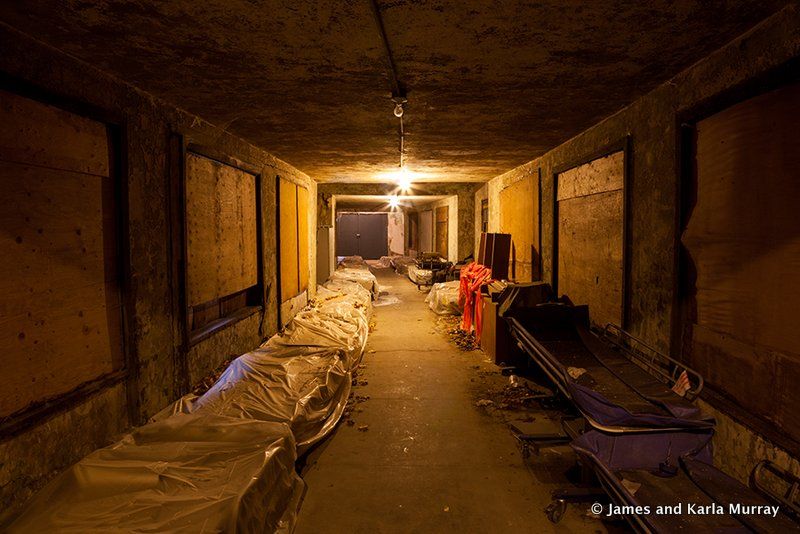
Entrance to one of the Women’s Open Air Pavilions, currently unoccupied, from the above ground tunnels,
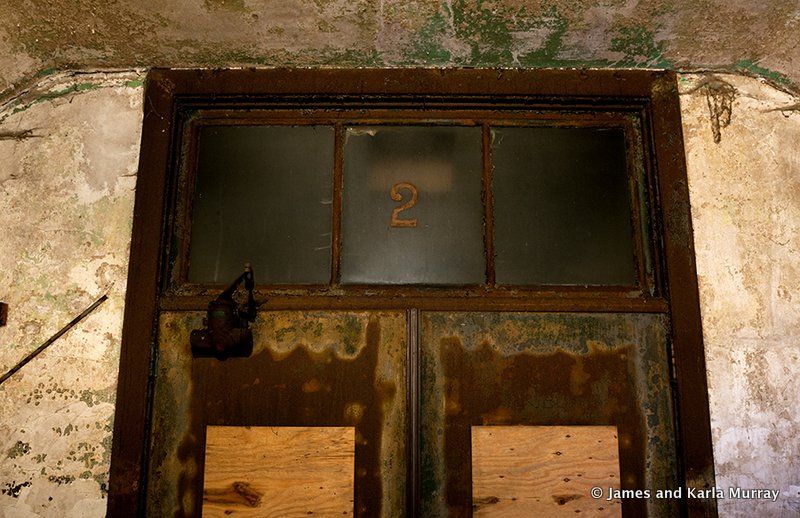
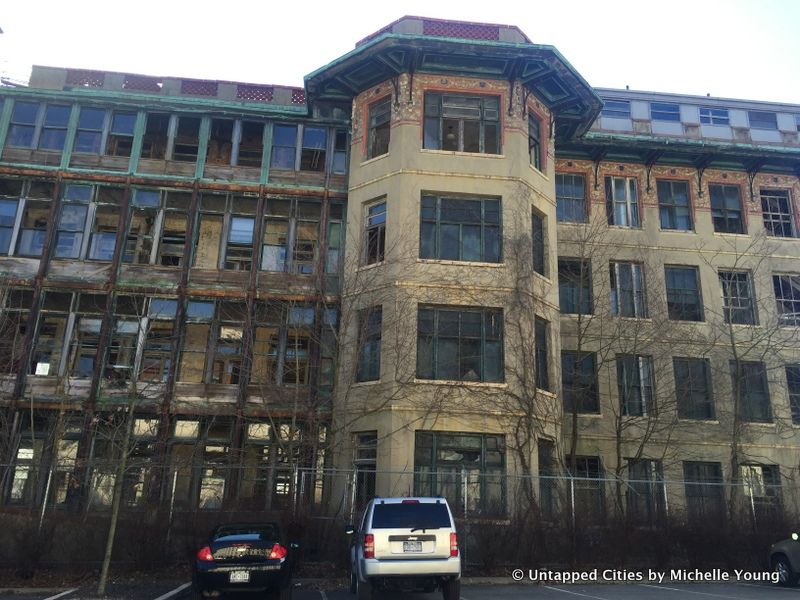
The top of the patient pavilions feature beautiful terra cotta murals depicting doctors, nurses, and patients, imported from Delft, Holland, made in the De Porceleyne Fles foundry. According to Staten Island Live, “the technique used to create the tiles at Sea View Hospital was known as sectile, which was first introduced at the 1900 Paris World’s Fair and was only used by the foundry in Delft between 1900 and 1910. The tiles created for Sea View were among the last made using this technique.” Several of the murals were saved and are on display in the lobby of the Robitzek Building.
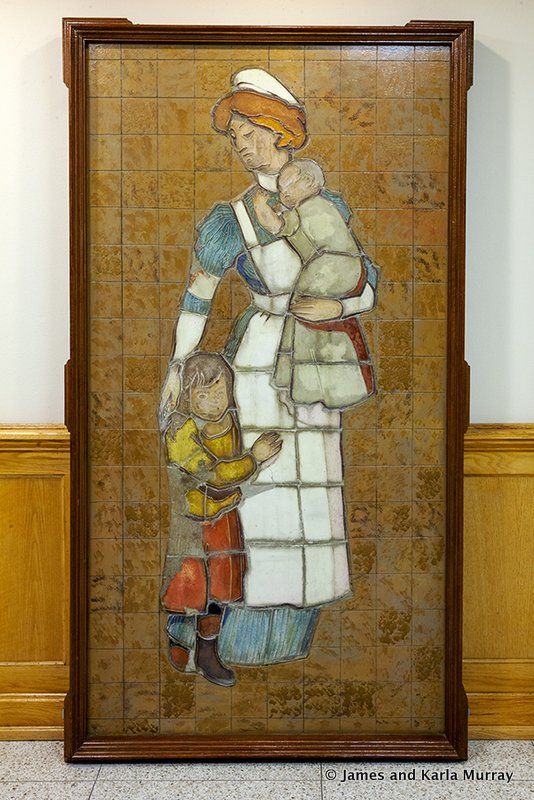
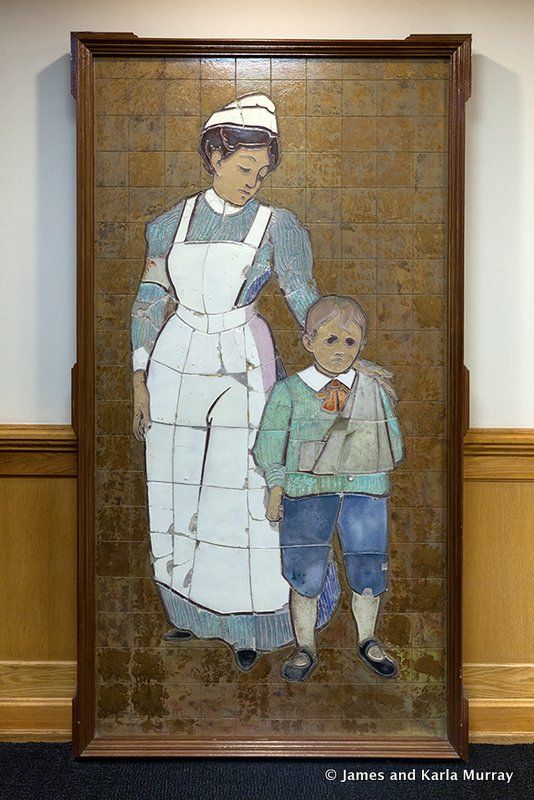

The historic Sea View Hospital on Staten Island opened in 1913 and focused on treating tuberculosis patients with fresh air, rest and a nutritious diet−the only prescribed treatments at the time. Sea View Hospital was once the pride of the city’s health care system, built at great cost to combat tuberculosis. In fact, it was the most expensive city-owned health care facility.
Sea View hospital was the site of the first clinical trials for hydrazides treatments, which ultimately led to the cure of the disease. The hospital gradually ceased operations in the late 1950’s, after the cure was discovered, and currently functions as a long term care facility.A cure was discovered here in 1957.
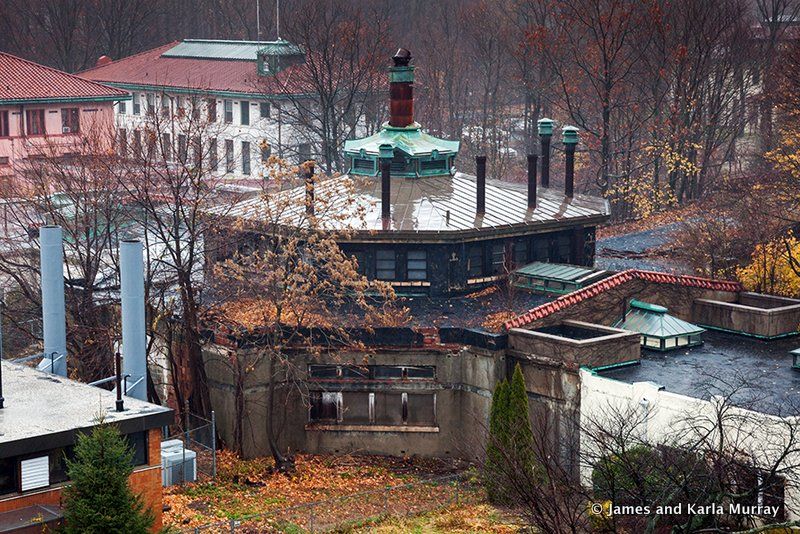
The buildings and layout were the work of Raymond F. Almirall, a New York City architect responsible for other notable municipal and institutional buildings, including the former Emigrant Industrial Savings Bank Building on Chambers Street, several Brooklyn Library branches, the former Fordham Hospital, and several churches. Sea View Hospital is in a landmarked Historic District.
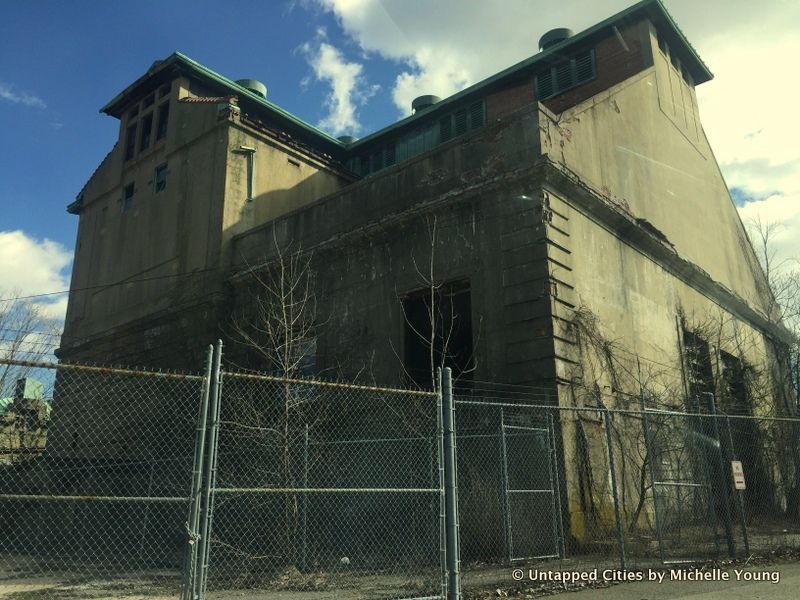
Sea View Hospital once produced its own steam and electricity through this power plant and laundry facility built in 1912 (with an extension in 1935), now unused and occupied. Due to the high level of asbestos in this building, it is unlikely it will be saved in the redevelopment. That being said, it also contains fewer historical details, compared to the other buildings on campus, many which have already been renovated and repurposed.
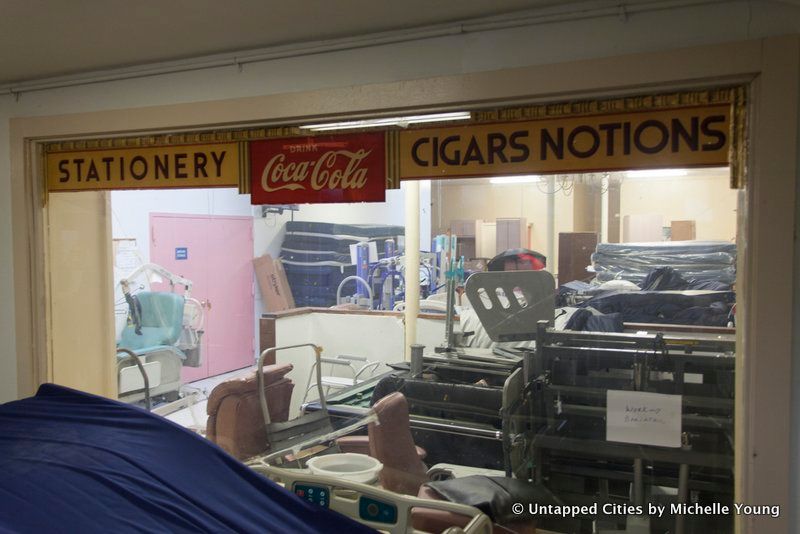
There was once a confectionery store selling things like cigars, stationery, Coca Cola and more. Like much of the above ground tunnels, the space is currently used for storage but the old school signage still remains. In 2011, a Subway (the deli chain) opened inside the Robitzek Building but it has since closed.
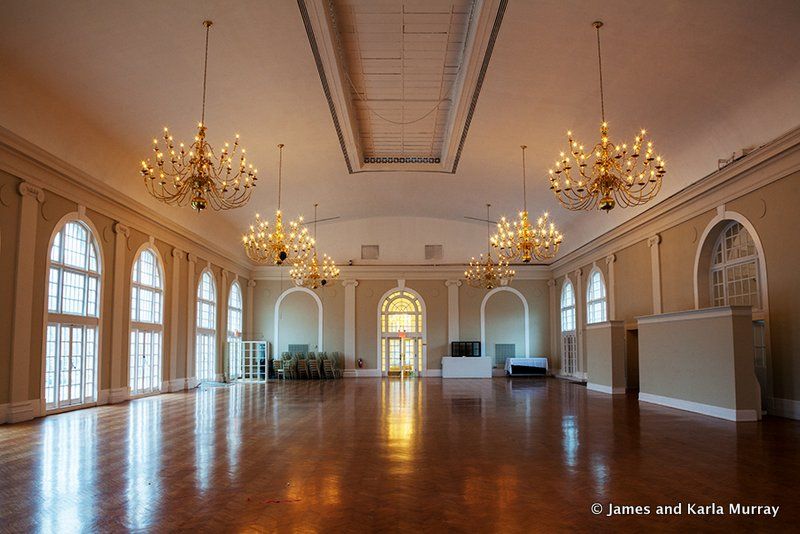
Inside Colony Hall
Colony Hall is a performance space that can seat 750 people and is still used for events. The Sea View Winter Wonderland show takes place every holiday season for those that cannot leave the community.
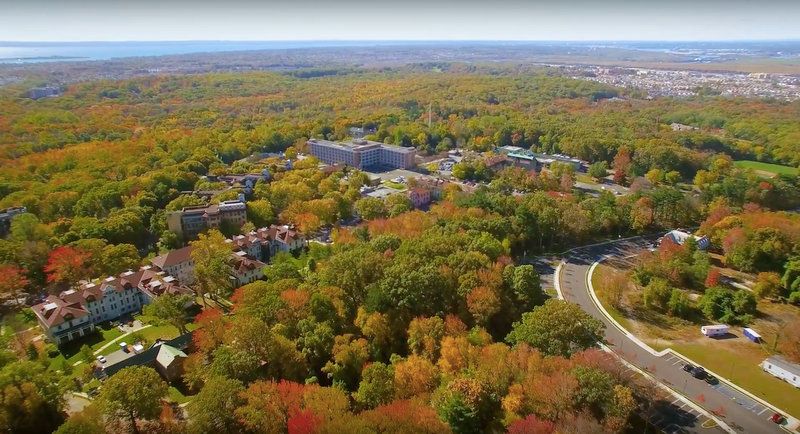
Image via NYCEDC Drone Video on Sea View Hospital
Seaview Hospital was built atop the former 25-acre hilltop estate of Charles Schmidt, which was known as “Ocean View” and is the tallest point on Staten Island apart from Todt Hill, which is the highest point in the five boroughs. According to the Commissioner of Public Charities at the time, the site was selected:
not only [to] meet the requirements of an adequate and healthy site, such as protection by rising ground and woodland from the north, northeast and northwest, good natural drainage with consequent warm soil, extended and diversified views for the distraction of patients – but one that would be easily accessible in the sense of transportation of patients with minimum risk and discomfort to the patients and the community at large; accessible in the sense of proximity,’ thereby permitting the visiting of friends with the minimum expense of time and money. It further became evident that the site should be one providing the surroundings of the country, naturally protected from encroachment by the growth of the City, permitting of ground extension at reasonable cost and removed from unpleasant and unattractive associations whether, sentimental or actual.
In addition to the renovation of the nurses’s quarters into Park Lane senior housing in 2009, many other buildings have been repurposed for other uses, including the City Mission Chapel, formerly the Chapel of St. Luke, the Physician, which is now the Sea View Playwright’s Theatre:

The Pathology Laboratory is the offices of the Staten Island Ballet:

The former Dining Hall, Kitchen, Service and Bakery Building from 1914 is now the Camelot, a counseling and living recovery program for young men battling substance abuse:

In addition, the surgical pavilion has been converted into a museum and the renovation of the Director’s House has accompanied the construction of The Brielle, a new assisted living facility on the Sea View property:

An example of the women’s tuberculosis dormitories on the eastern side of the Sea View complex. One of these was renovated into eight units of senior housing, known as Park Lane at Sea View Cottage in 2009:
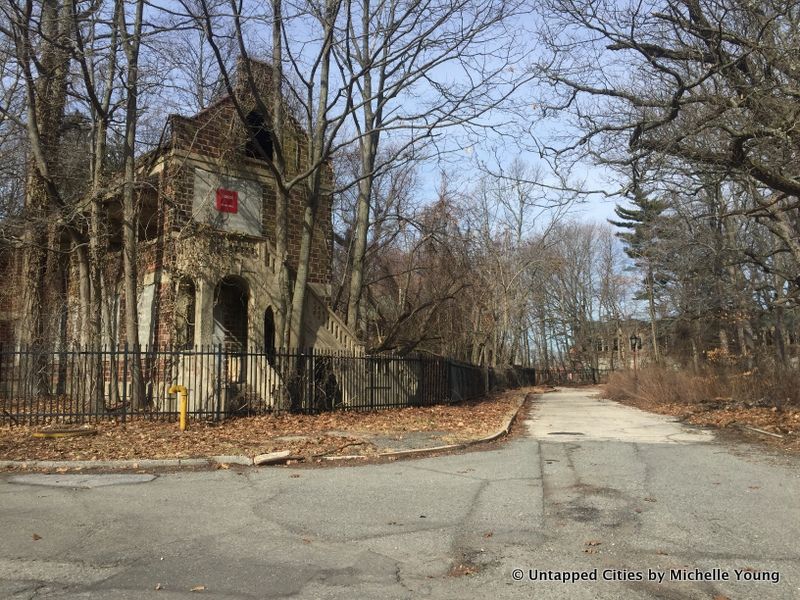
The Staten Island Farm Colony, across the street, is part of the same historic district and is undergoing conversion into a multi-use complex with age-restricted senior housing, affordable housing, and publicly accessible open space.
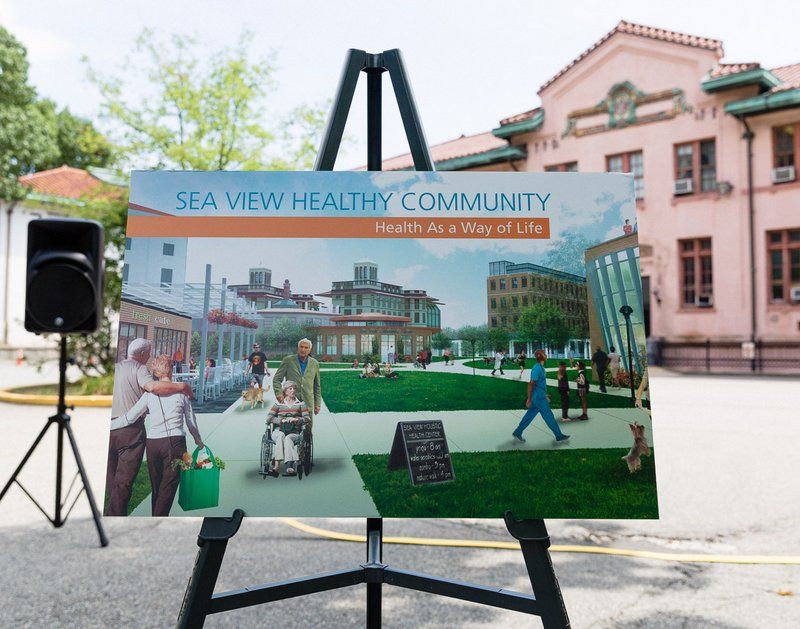
Photo courtesy of NYCEDC
The latest redevelopment of Sea View Hospital will result in the first planned wellness community on Staten Island. According to officials, a balanced approach to landmarking will be implemented looking for exciting, feasible and productive new uses for as many of the buildings as possible. Realistically, not all the buildings will likely survive but it is clear that a concerted attempt to save Sea View’s architectural and historical legacy is underway.
Next, check out the Top 10 Secrets of the Bayonne Bridge connecting Staten Island and New Jersey. See more stories about Sea View Hospital.
Subscribe to our newsletter